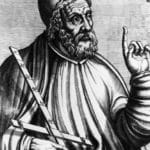Remarkable History of Astrology!
 Starting from this year’s date, 2020 AD, Astrology has enjoyed about a 4000-year existence. It was the ancient Babylonians who are credited with creating this phenomenon somewhere around 1800 BC.
Starting from this year’s date, 2020 AD, Astrology has enjoyed about a 4000-year existence. It was the ancient Babylonians who are credited with creating this phenomenon somewhere around 1800 BC.
In the beginning, Astrology covered more than predictions about one’s wealth, fame and romance. The Babylonians used their new star system to help them plant crops and monitor when the seasons were changing.
From Babylon, the study of the stars went to the Greeks, then to the Romans, who passed it on to the Arabs and finally on to the modern world. Plato, Aristotle, and other Greek philosophers further provided Astrology additional legitimacy.
Origin of Astrology Signs
 The term Zodiac comes from the Latin term ’zodiacus’ which in turn came from the Greek words ‘zodiakos kuklos’ which means a circle of animals. For the most part, the modern zodiac is filled with animals.
The term Zodiac comes from the Latin term ’zodiacus’ which in turn came from the Greek words ‘zodiakos kuklos’ which means a circle of animals. For the most part, the modern zodiac is filled with animals.
While the term may have come from Greek and Latin sources, the circle of animals originated with the Babylonians, who in turn it is said, received it from one of the first civilizations the Sumerians.
But there are theories out there hypothesizing that the circle of animals actually dated to a much earlier time. However, those theories are not based upon real ancient records and it is safe to credit the Babylonians for inventing the different zodiac signs.
Origin of Astrology Development

While the Babylonians had developed a fairly good and accurate system, it still needed some improvement. That improvement came from the Greeks and with the helping hand of Ptolemy.
The Greek astronomer Hipparchus (second century B.C) is credited with introducing numerical data from observations into geometric models and discovering the precession of the equinoxes. Little of his work survives, but Ptolemy considered him his most important predecessor. He built off of the work of Hipparchus of Nicaea and thoroughly explained the theoretical aspects of the zodiac. He was the man that brought the tropical co-ordinate system into astrology which gave prominence to the zodiac itself when it is aligned with the different equinoxes and solstices and not the constellations which were both visible and held the same names as the different zodiac signs.
Origin of the Horoscope
 This is very hard to ascertain as the Babylonians and other ancient civilizations used this system to help them conduct astronomical observations, monitoring the sun, the stars and so on.
This is very hard to ascertain as the Babylonians and other ancient civilizations used this system to help them conduct astronomical observations, monitoring the sun, the stars and so on.
It is said that it was the ancient Egyptians who created the first horoscope. While an ancient Babylonian horoscope survives from 410 BC and was one of the earliest baby charts constructed, it is not the oldest one.
The oldest horoscope is dated 668 to 626 BC and it is found in ancient documents. Unfortunately, there is no mention of which civilization gets the credit for the first horoscope.
What complicates the dating of the first horoscope is the fact that the Mayans, Incas, and Aztecs independently developed their own zodiac which held 20 signs.
Origin of Modern Astronomy
 The person credited with creating modern astronomy was none other than a humble Polish astronomer and church official Nicolaus Copernicus. It was his heliocentric solar system model that changed astronomy from an ancient practice to a modern one.
The person credited with creating modern astronomy was none other than a humble Polish astronomer and church official Nicolaus Copernicus. It was his heliocentric solar system model that changed astronomy from an ancient practice to a modern one.
This new model kept a circular orbit of the planets but removed the earth from the center of the universe. The need for epicycles was moot and they were removed. What Copernicus did was make it easier to use astronomy to predict planet motions
He also placed the different planet’s orbits around the sun in their correct order. These changes had a great influence on how astronomy was conducted from the 16th century AD onward.
Some Final Words…
Astrology has had a long life. That is because people are always interested in the stars as well as wanting to know how their lives will play out. It is an attitude that has been around since man began walking the earth thousands of years ago.

